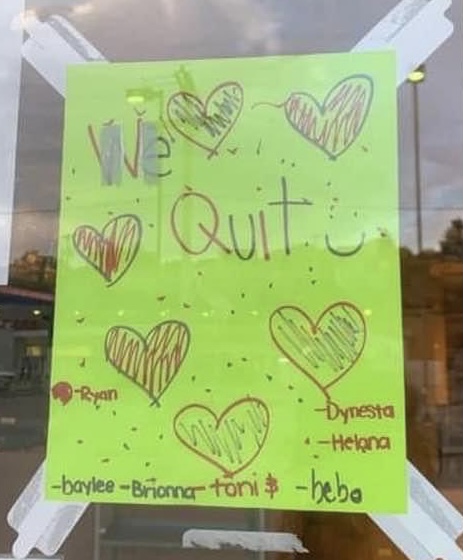As the pandemic fades from the day-to-day life of many, several publications are back writing “positive pieces” about community events and people feeling good.
Now, though, is the time for labor publications to double down and cover those who continue to be harmed by the pandemic’s long-term effects.
More than half of the American population is not yet vaccinated and even some workers who are vaccinated have reported getting infected again as the virus mutates. Statistics show that communities of color are particularly hesitant to get vaccinated because they distrust the government and the medical establishment.
Many undocumented workers fear getting vaccinated because of ID requirements in some places, while others are hesitant because of a recently-rescinded Trump-era “public charge” rule, which charged immigrants with crimes for using publicly provided services.
This fear of vaccination and the pandemic itself may have caused unprecedented levels of stress anxiety and fear among workers all over the world. Whether this has led to more workers in countries like the UK looking for alternative medicines that might help them cope with the stress by researching and looking at pages about what may be the best CBD gummies UK to help with stress. Or it could be leading workers in other countries such as the US or Sweden to look into cheap ways of medicating their stress, with the fear of COVID in their lives.
In addition to the continuing threat of COVID for many workers, they’ve had to face the economic impact of the recession. Many workers are still wiped out financially and businesses (including our own) are struggling to stay afloat amid a wildly unequal economy. Many even tried to move their businesses online probably with the assistance of an ecommerce for services so they could survive this ongoing crisis and maintain their finances. Though the transition might not have been an easy one, at the least, it kept them going, unlike the many workers who ended up losing their job and were left with no source of income. The increase in eCommerce also led to an exponential increase in the number of online payments made, as provided in the study conducted by paybyphonecasino.uk. This apparently would have come as a result of people choosing to make all their purchases online to avoid physical contact even in the form of exchanging notes.
The good news is workers are continuing to fight back. In Pittsburgh just this week, workers first at a Dollar General and then at a nearby Subway walked off the job and quit en masse to protest poor working conditions; part of a nationwide trend where fast-food and retail workers have been spontaneously walking off the job and posting photos (that later go viral) of the protest signs they’ve taped on the doors.
In April of 2021 alone, 649,000 retail workers quit as they are demanding more following the pandemic; it is the largest exodus of retail workers in one month since the Department of Labor began tracking the statistics 20 years ago.
Plus, workers are still going on strike at higher numbers than they did before the pandemic as more than 1350 strikes have happened since the beginning of the pandemic according to Payday Report’s Strike Tracker. Now, we are even starting to see some anecdotal evidence of employers locking out workers rather than giving in to their demands.
As a small news publication, there’s a lot to cover, which is why we need your support as the public attention steers away from workers still affected by the pandemic and its fallout.
With more and more people becoming vaccinated and life returning to “normal,” we are seeing readers become less engaged and less interested in reading stories about the pandemic.
We want to focus this summer on the workers being left behind as the pandemic fades from view. Stories about the undocumented workers working in unsafe workplaces, the communities of color devastated by COVID, and the long-term unemployed who are still struggling to find good work.
We want to cover workers walking off the job and the new forms of organizing such as spontaneous fast food and retail walkouts that are emerging in the wake of the pandemic.
Our unique labor reporting has already had a huge national impact.
Our work has drawn praise from everyone including The New York Times to NPR’s All Things Considered to The New Yorker. Even film director Boots Riley cited us on the podcast “Bad Faith” where he praised our Strike Wave Tracker.
“You could count on one hand the number of outlets, whether they’re mainstream or radical, that pushed this fact,” Riley said of our work tracking more than 1,300 strikes since the beginning of the pandemic.
Since our founding in 2016, we have published 659 stories as well as dozens of videos from 24 different states on the struggles of workers across the U.S.
Please help us keep telling the stories that no one else is telling.
As always, the best way to support this work is to sign up as one of our 595 recurring donors today.
Thank you to those who help us. Together, we are building a new type of crowdfunded labor publication.
Love & Solidarity,
Melk


